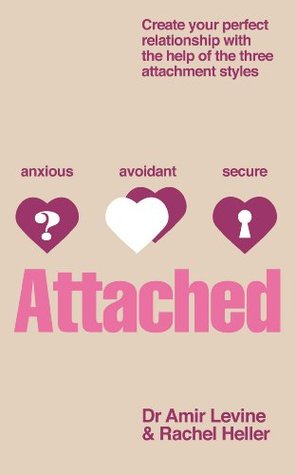More on this book
Community
Kindle Notes & Highlights
Basically, secure people feel comfortable with intimacy and are usually warm and loving; anxious people crave intimacy, are often preoccupied with their relationships, and tend to worry about their partner’s ability to love them back; avoidant people equate intimacy with a loss of independence and constantly try to minimize closeness.
Attachment principles teach us that most people are only as needy as their unmet needs. When their emotional needs are met, and the earlier the better, they usually turn their attention outward. This is sometimes referred to in attachment literature as the “dependency paradox”: The more effectively dependent people are on one another, the more independent and daring they become.
If you want to take the road to independence and happiness, find the right person to depend on and travel down it with that person.
When our partner is unable to meet our basic attachment needs, we experience a chronic sense of disquiet and tension that leaves us more exposed to various ailments.
This is an important lesson for someone with an anxious attachment style: If you just wait a little longer before reacting and jumping to conclusions, you will have an uncanny ability to decipher the world around you and use it to your advantage. But shoot from the hip, and you’re all over the place making misjudgments and hurting yourself.
True love, in the evolutionary sense, means peace of mind. “Still waters run deep” is a good way of characterizing it.
The trick is not to get hooked on the highs and lows and mistake an activated attachment system for passion or love. Don’t let emotional unavailability turn you on.
Sometimes secure people, despite their innate talent for warding off potentially unsuitable matches and making their partners more secure, can find themselves in bad relationships. This can happen not only when they’re inexperienced but also when they respond to their long-term partner’s unacceptable behavior, by continuing to give them the benefit of the doubt and tolerate their actions.
If you’re still in the relationship, remember that just because you can get along with anyone doesn’t mean you have to. If you’re unhappy after having tried every way to make things work, chances are that you should move on. It’s in your best interest to end a dysfunctional relationship rather than get stuck forever with the wrong person just because you’re secure.
Five Secure Principles for Resolving Conflict Show basic concern for the other person’s well-being. Maintain focus on the problem at hand. Refrain from generalizing the conflict. Be willing to engage. Effectively communicate feelings and needs.
Try to keep a number of truths in mind when you are in the midst of a fight: A single fight is not a relationship breaker. Express your fears! Don’t let them dictate your actions. If you’re afraid that s/he wants to reject you, say so. Don’t assume you are to blame for your partner’s bad mood. It is most likely not because of you. Trust that your partner will be caring and responsive and go ahead and express your needs. Don’t expect your partner to know what you’re thinking. If you haven’t told him/her what’s on your mind, s/he doesn’t know! Don’t assume that you understand what your partner
...more
Insecure Conflict Strategies to Avoid Getting sidetracked from the real problem. Neglecting to effectively communicate your feelings and needs. Reverting to personal attacks and destructiveness. Reacting “tit for tat” to a partner’s negativity with more negativity. Withdrawing. Forgetting to focus on the other’s well-being.
Don’t Lose Sight of These Facts: Your attachment needs are legitimate. You shouldn’t feel bad for depending on the person you are closest to—it is part of your genetic makeup. A relationship, from an attachment perspective, should make you feel more self-confident and give you peace of mind. If it doesn’t, this is a wake-up call! And above all, remain true to your authentic self—playing games will only distance you from your ultimate goal of finding true happiness, be it with your current partner or with someone else.


